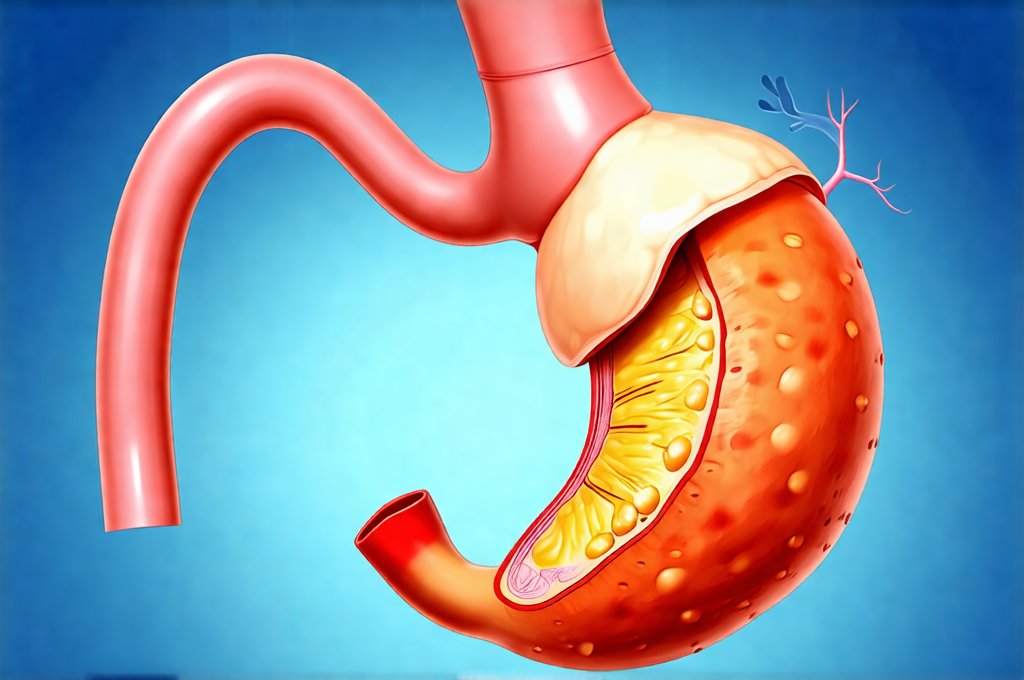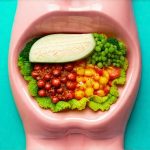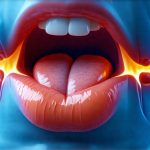Gastroesophageal reflux disease (GERD) is a surprisingly common condition, impacting millions worldwide. Many individuals experience the hallmark symptoms – heartburn, regurgitation, difficulty swallowing – but often in unpredictable ways. One particularly frustrating pattern many GERD sufferers notice is a significant worsening of their symptoms when their stomach is empty. This isn’t merely anecdotal; there are physiological reasons why an empty stomach can exacerbate reflux and its associated discomfort. Understanding these mechanisms can empower individuals to better manage their condition and work with healthcare professionals on effective strategies.
The sensation of burning in the chest, sour taste in the mouth, or the feeling of food going “the wrong way” can be dramatically amplified when you haven’t eaten for a while. This isn’t necessarily due to more acid being present, but rather how that existing acid interacts with the esophageal lining and how effectively (or ineffectively) the body is working to neutralize it. The relationship between stomach emptiness and GERD symptoms is complex and involves multiple interacting factors related to gastric production, esophageal sensitivity, and even psychological components. It’s a reminder that digestive health isn’t always about what you eat, but also when and how frequently you eat. Considering meal timing might be beneficial if are gut symptoms worse with irregular meals.
The Role of Gastric Acid Production & Empty Stomach Dynamics
When the stomach is empty for an extended period, several things happen that can contribute to increased GERD symptoms. First, the body doesn’t necessarily “turn off” acid production just because we haven’t eaten. In fact, between meals, and especially overnight, baseline acid secretion continues. This continued production, without food to buffer it, leads to a higher concentration of acid in the stomach. Second, an empty stomach has reduced physical pressure on the lower esophageal sphincter (LES), the muscular valve that prevents stomach contents from flowing back up into the esophagus. Think of the LES like a tightly sealed door; when there’s food inside pressing against it, the seal is stronger.
This combination – increased acid concentration and weakened LES pressure – creates an ideal environment for reflux to occur. Furthermore, the rate at which the stomach empties can also play a role. Rapid emptying (which often follows a period of emptiness) can overwhelm the LES with a larger volume of acidic content all at once. Finally, when we anticipate hunger or have been without food for some time, our bodies may increase gastric motility (the movement of the digestive tract), potentially increasing the likelihood of reflux events. It’s not just about how much acid is there, but how it interacts with a less protected and more vulnerable esophageal environment. You might also find that are you triggering symptoms by combining foods plays a role.
Consider these points:
– An empty stomach doesn’t mean no acid; baseline production continues.
– Reduced food volume means less pressure on the LES.
– Rapid emptying after fasting can overwhelm the LES.
Esophageal Hypersensitivity & The Brain-Gut Connection
While increased acidity is a significant factor, it’s not the whole story. Many GERD sufferers experience symptoms even when acid levels are within normal ranges, suggesting that esophageal hypersensitivity plays a crucial role. This means the esophagus becomes abnormally sensitive to even small amounts of refluxed material, triggering pain signals more readily than in individuals without GERD. An empty stomach can exacerbate this hypersensitivity because the lack of food provides no buffering or neutralizing effect on any acid that does manage to reflux. Why gut trouble is often worse in quiet moments can also contribute to this heightened sensitivity.
The brain-gut connection is also deeply intertwined with GERD symptom perception. When we are hungry or anticipating hunger – especially if we associate it with discomfort from previous reflux episodes – stress and anxiety levels can increase. This heightened emotional state can lower the threshold for pain perception, making us more aware of even minor esophageal sensations. The vagal nerve, which connects the brain and gut, is heavily involved in this process; signals related to stomach emptiness or perceived threat can amplify the experience of heartburn or other GERD symptoms. It’s a feedback loop: discomfort leads to anxiety, which amplifies the discomfort further.
Understanding Vagal Nerve Stimulation & Reflux
The vagal nerve is often described as a two-way street for gut-brain communication. When the stomach is empty and signaling hunger, this can stimulate the vagal nerve, potentially leading to increased acid secretion (in anticipation of food) and altered esophageal motility. This stimulation isn’t always beneficial; in some individuals with GERD, it can actually worsen reflux episodes by relaxing the LES or increasing gastric pressure.
Here’s how this process may unfold:
1. Stomach emptiness signals to the brain via the vagal nerve.
2. The brain responds by potentially stimulating acid production and/or altering esophageal motility.
3. This can lead to increased risk of reflux and amplified symptom perception due to heightened sensitivity.
Managing vagal nerve stimulation, therefore, may be a helpful component of GERD management strategies. Techniques like mindful eating, stress reduction exercises (yoga, meditation), and even deep breathing can help modulate the activity of the vagal nerve and reduce its impact on reflux symptoms. It’s important to remember that this is a complex interplay, and what works for one person may not work for another. Perhaps exploring what intolerance symptoms are often missed could help identify contributing factors.
The Impact of Delayed Gastric Emptying vs. Rapid Emptying
While an empty stomach often worsens GERD, the timing of eating and how quickly food empties from the stomach also matters significantly. As discussed earlier, rapid gastric emptying after a period of fasting can overwhelm the LES, leading to reflux. However, in some cases, delayed gastric emptying can contribute to symptoms as well. When food stays in the stomach for too long, it increases the risk of fermentation and gas production, which can put pressure on the LES.
This is why dietary choices are so important; certain foods (high-fat meals, caffeine, alcohol) can slow down gastric emptying. It’s a balancing act: you want food to move through the digestive system at a reasonable pace – not too fast and not too slow – to minimize the risk of reflux. Finding this balance often requires experimentation and personalized dietary adjustments. Many people find are overripe fruits easier on the gut when making these changes.
Lifestyle Adjustments & Symptom Management Strategies
Fortunately, there are several lifestyle modifications that can help mitigate GERD symptoms when the stomach is empty. – Eating smaller, more frequent meals throughout the day helps maintain a consistent level of food in the stomach, reducing both acid concentration and pressure fluctuations on the LES. – Avoiding late-night eating allows the stomach to empty partially before lying down, minimizing nighttime reflux. – Elevating the head of your bed can also help prevent nocturnal reflux by utilizing gravity to keep stomach contents where they belong.
Furthermore, stress management techniques – such as yoga, meditation, or deep breathing exercises – can help reduce vagal nerve stimulation and overall symptom perception. It’s crucial to remember that these strategies are not a cure for GERD but rather tools to manage symptoms effectively. Consulting with a healthcare professional is essential for developing a personalized treatment plan that addresses your specific needs and concerns. They may recommend over-the-counter or prescription medications, alongside lifestyle adjustments, to provide optimal relief and improve quality of life. It’s also worth considering if are digestive symptoms worse in the morning for a more complete understanding of your experience.


















